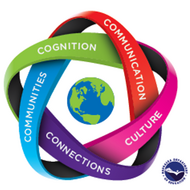Understanding Fairytales with a Graphic Organizer
(View Complete Item Description)Overview: This OER: Understanding Fairytales with a Graphic Organizer was created by Stephanie Werner and as part of the 2024 World Language OER Summer work and training. Educators worked with Chrystal Liu, Nick Ziegler and Dorann Avey to create OER Learning Plans and materials. The attached Lesson Plan and Graphic Organizer is designed for 7-12 World Language Teachers of Low to Mid level Intermediate Spanish, French or German language learners. It is expected that this Lesson Plan will take students 60 minutes.
Material Type: Lesson Plan



















